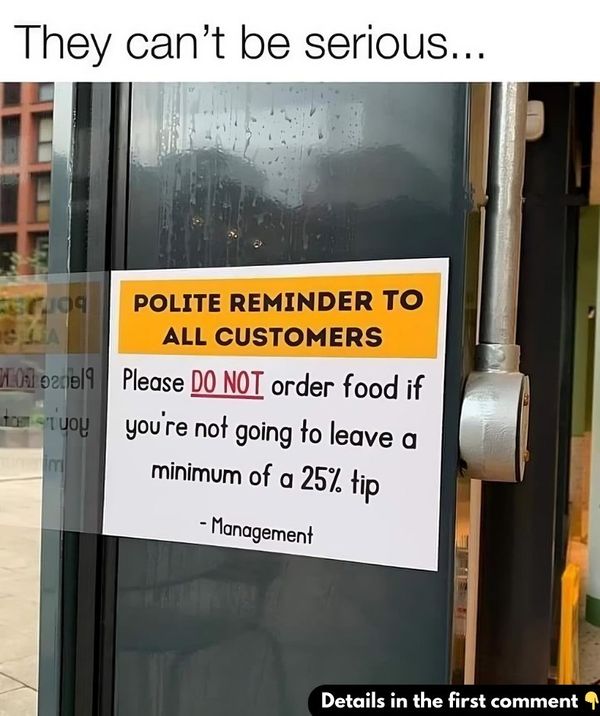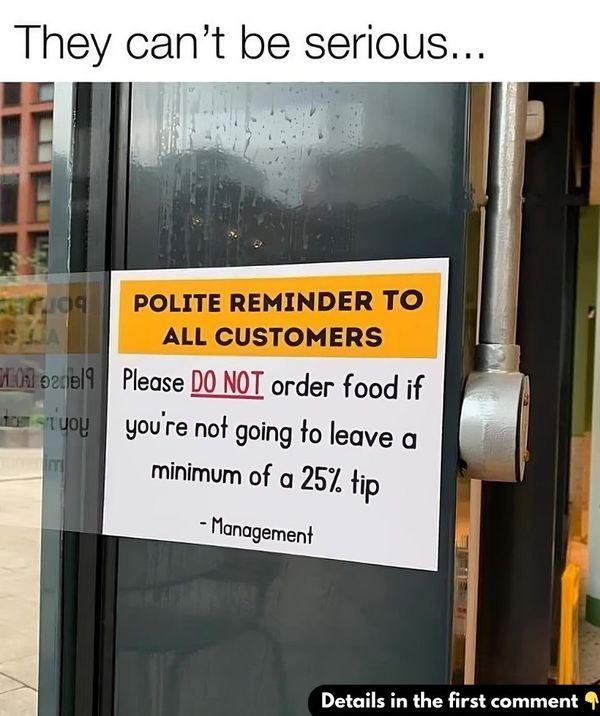
Tipping: A Controversial Practice in the Modern Era
Tipping has been an essential part of the service industry in the United States for a long time, initially intended as a way to show appreciation for exceptional service. However, over the years, tipping has become a heated topic of debate. Nowadays, tipping feels less like a voluntary gesture and more like an obligatory payment, sparking discussions about its fairness and relevance in our society today.
Tipping originated in 19th-century Europe as a way to reward service workers who went above and beyond. It then made its way to the United States as a bonus for outstanding service. In those early days, tipping was a means for customers to express gratitude and for workers to earn some extra income. Unfortunately, the tipping system has strayed far from its original intent. Many industries now heavily rely on tips to compensate for low wages, turning tipping into a necessity rather than a reward for quality service.
Dustin Anderson, known for his outspoken views on tipping, stirred up controversy when he questioned its relevance in today’s world. “When was the last time you received exceptional service, anywhere?” he asked on social media. Anderson pointed out that tipping has become an expected practice, regardless of the actual quality of service provided. He observed that tipping has lost its connection to truly rewarding excellence. Many people agreed with Anderson, expressing that tipping has become excessive, even for simple tasks like getting coffee or takeout.
Despite the frustrations surrounding tipping, many people still view it as crucial, especially those who have worked in service jobs themselves. For these workers, tips are not just extra money; they are a vital part of their income. One commenter shared their experience as a former server, mentioning that if they didn’t earn enough in tips, they had to compensate others like bussers and bartenders out of their own pockets. The general sentiment is that the underlying issue lies not in tipping itself but in employers who underpay their staff, forcing them to rely heavily on tips. Therefore, for many, tipping remains a significant part of the service industry.
The tipping culture has evolved significantly from its origins. Nowadays, we encounter tip requests at coffee shops, fast-food counters, and even self-checkout stands. Services like delivery have added to the complexity, with stories surfacing about drivers mishandling orders when tips are low or absent. A recent case involved a woman who chose not to tip her home-based hairdresser, arguing that the hairdresser did not have to travel or deal with overhead costs. While some people understood her viewpoint, others emphasized that tipping remains crucial when services are provided.
Tipping in the United States has a controversial history with roots in racial discrimination. After slavery was abolished, some employers used tipping as a way to avoid paying newly freed Black workers fair wages. This practice disproportionately affected women of color, perpetuating systemic discrimination within the tipping culture. Although racial dynamics have evolved, those who rely on tips still face financial instability, often earning less than the minimum wage. Critics argue that this places an unfair burden on customers to subsidize wages instead of holding businesses accountable.
Interestingly, while tipping originated in Europe, it is now far less common in many European countries. In these countries, service charges are typically included directly on the bill, and employees are paid fair wages, eliminating any ambiguity and ensuring a reliable income. In contrast, tipping in the United States is deeply ingrained in the culture, even when service may not warrant it. This discrepancy raises questions about why the United States continues with a system that other regions have moved beyond.
The tipping culture is at a crossroads. While there is a consensus that it has become excessive, the proposed solutions vary. Some suggest abolishing tipping altogether and urging employers to pay fair wages, incorporating service charges into their costs. Others propose a return to the roots of tipping, where exceptional service would be the sole reason for extra compensation. At the heart of this debate lies the concept of fairness. Customers should not feel pressured to tip, and workers should not have to rely on inconsistent tips to make a living. A system that emphasizes straightforward pricing and fair pay may be the solution.
What began as a simple gesture of appreciation has turned into a contentious practice in today’s world. Dustin Anderson’s viral critique has reignited the conversation about the flaws within our current tipping culture and the need for fundamental change. By addressing the underlying issues of low wages and unclear expectations, we can move towards a fairer system. Until such changes are implemented, tipping will continue to be a hot topic, urging us to reflect on what gratitude and fairness truly mean in today’s society.




